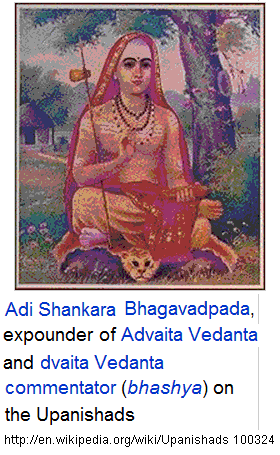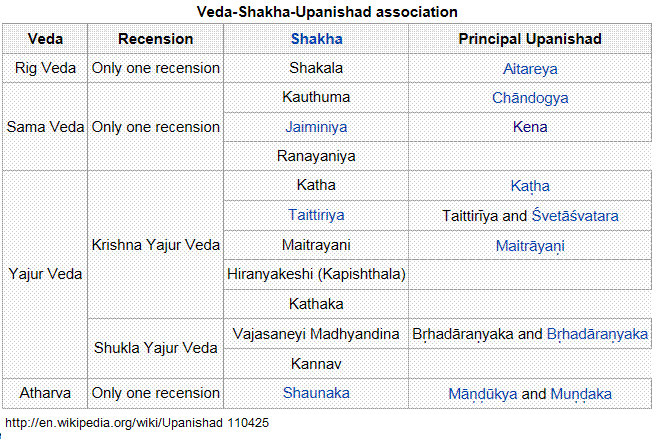u1pa1-038b3.htm
from: Online Sanskrit Dictionary, February 12, 2003 . http://sanskritdocuments.org/dict/dictall.pdf 090907
Downloaded, set in HTML, and edited by U Kyaw Tun, M.S. (I.P.S.T., U.S.A.), and staff of TIL Computing and Language Centre, Yangon, Myanmar. Not for sale. No copyright. Free for everyone.
index.htm | Top
SED-vow-u1u2-indx.htm
उप (upa)
Skt:
उप (upa) near - OnlineSktDict
Pal: upa prep. below, less - UPMT-PED049
उपज्ञशं
(upa+shaM)
Skt:
उपज्ञशं
(upa+shaM) - to extinguish - OnlineSktDict
उपकरण (upakaraNa)
Skt:
उपकरण (upakaraNa) - means - OnlineSktDict
उपकल्पना
(upakalpanaa)
Skt:
उपकल्पना
(upakalpanaa) - (f) hypothesis - OnlineSktDict
उपकार (upakaara)
Skt:
उपकार (upakaara) - benefit - OnlineSktDict
उपकारक
(upakaaraka)
Skt:
उपकारक
(upakaaraka) - beneficial - OnlineSktDict
उपकृ (upakRi)
Skt:
उपकृ (upakRi) - to do a favour - OnlineSktDict
उपक्रमः
(upakramaH)
Skt:
उपक्रमः
(upakramaH) - (m) project, undertaking - OnlineSktDict
उपग्रहः
(upagrahaH)
Skt:
उपग्रहः
(upagrahaH) - (m) satellite, spacecraft - OnlineSktDict
उपचय (upachaya)
Skt:
उपचय (upachaya) - Houses of earning (3,6,10,11) - OnlineSktDict
[astrological term - UKT]
उपचारः (upachaaraH)
Skt:
उपचारः (upachaaraH) -(m) remedy, treatment-OnlineSktDict
उपचारिका
(upachaarikaa)
Skt:
उपचारिका
(upachaarikaa) -(f) nurse- OnlineSktDict
€ उपचालक
upacālaka
Skt: उपचालक
upacālaka m. adductor
[Anat.] - SpkSkt
उपजायते
(upajaayate)
Skt:
उपजायते
(upajaayate) - takes place-OnlineSktDict
उपजायन्ते
(upajaayante)
Skt:
उपजायन्ते
(upajaayante) - are born- OnlineSktDict
उपजुह्वति
(upajuhvati)
Skt:
उपजुह्वति
(upajuhvati) - offer- OnlineSktDict
€ उपजिघ्रति
{ उप- घ्रा }
Skt: उपजिघ्रति
{ उप- घ्रा } upajighrati
{ upa- ghrā } v3 smell at
उपदानं (upadaanaM)
Skt:
उपदानं (upadaanaM) - (n) gratuity-OnlineSktDict
उपदेश (upadesha)
Skt:
उपदेश (upadesha) - advice- OnlineSktDict
उपदेशः (upadeshaH)
Skt:
उपदेशः (upadeshaH) - advice- OnlineSktDict
उपदेशयति
(upadeshayati)
Skt:
उपदेशयति
(upadeshayati) - giving advice- OnlineSktDict
उपदेक्ष्यन्ति
(upadekShyanti)
Skt:
उपदेक्ष्यन्ति
(upadekShyanti) - they wil initiate-OnlineSktDict
€ उपदिपयति { उप- दीप् } upadipayati {upa-dīp} v. caus. set on fire
उपद्रष्टा
(upadrashhTaa)
Skt:
उपद्रष्टा
(upadrashhTaa) - overseer-OnlineSktDict
उपधानम्
(upadhaanam.h)
Skt:
उपधानम्
(upadhaanam.h) - (n) pillow- n. pillow
Pal: upadhāna n. a pillow, cushion - UPMT-PED051
Skt:
- OnlineSktDict
उपधारय
(upadhaaraya)
Skt:
उपधारय
(upadhaaraya) - know - OnlineSktDict
उपनगरम्
(upanagaram.h)
Skt:
उपनगरम्
(upanagaram.h) - (n) suburb- OnlineSktDict
उपनाम (upanaama)
Skt:
उपनाम (upanaama) - alias-OnlineSktDict
उपनिषत्
(upanishhat.h)
Skt:
उपनिषत्
(upanishhat.h) - says the ' ypanishat.h' OnlineSktDict
उपनिषद्
(upanishhad.h)
Skt:
उपनिषद्
(upanishhad.h) - the philosophical parts of the Vedas- OnlineSktDict
See my note on Upanishad .
उपनेत्रम्
(upanetram.h)
Skt:
उपनेत्रम्
(upanetram.h) - (n) spectacles, glasses- OnlineSktDict
उपन्यासकः
(upanyaasakaH)
Skt:
उपन्यासकः
(upanyaasakaH) - (m) lecturer- OnlineSktDict
उपपत्तिषु
(upapattishhu)
Skt:
उपपत्तिषु
(upapattishhu) - having obtained- OnlineSktDict
उपपद (upapada)
Skt:
उपपद (upapada) - The sign which is as apart from
the 12th lord as the latter is from the 12th house-OnlineSktDict
उपपद्यते
(upapadyate)
Skt:
उपपद्यते
(upapadyate) - is befitting- OnlineSktDict
उपपन्नं
(upapannaM)
Skt:
उपपन्नं
(upapannaM) - arrived at- OnlineSktDict
उपदन्धः
(upabandhaH)
Skt:
उपदन्धः
(upabandhaH) - (m) provision- OnlineSktDict
उपभोग (upabhoga)
Skt:
उपभोग (upabhoga) consumption -consumption- OnlineSktDict
Pal: upabhoga m. enjoyment - UPMT-PED051
उपमं
(upamaM)
Skt:
उपमं
(upamaM) - compared to- OnlineSktDict
उपमा
(upamaa)
Skt:
उपमा
(upamaa) comparative - comparative-OnlineSktDict
Pal: upamā f. comparison, illustration, aprable -
UPMT-PED051
उपयान्ति (upayaanti)
Skt:
उपयान्ति (upayaanti) - come - OnlineSktDict
उपयुज्
(upayuj.h)
Skt:
उपयुज्
(upayuj.h) - use - OnlineSktDict
उपयोग
(upayoga)
Skt:
उपयोग
(upayoga) use -use- OnlineSktDict
Pal: upayoga m. employment, use - UPMT-PED052
उपयोगिता
(upayogitaa)
Skt:
उपयोगिता
(upayogitaa) - Utility - OnlineSktDict
उपरतं
(uparataM)
Skt:
उपरतं
(uparataM) - ceased - OnlineSktDict
उपरन्जितैः
(uparanjitaiH)
Skt:
उपरन्जितैः
(uparanjitaiH) - splendid, resplendant - OnlineSktDict
उपरमते
(uparamate)
Skt: उपरमते
(uparamate) - cease (because one feels transcendental happiness)
- cease
(because one feels transcndental happiness) - OnlineSktDict
Pal: uparamati v. to cease - UPMT-PED052
उपरमेत्
(uparamet.h)
Skt:
उपरमेत्
(uparamet.h) - one should hold back - OnlineSktDict
उपरि (upari)
Skt:
उपरि (upari) - (adv) above - OnlineSktDict
उपलभ् (upalabh.h)
Skt:
उपलभ् (upalabh.h) - to obtain - OnlineSktDict
उपलभ्यते
(upalabhyate)
Skt:
उपलभ्यते
(upalabhyate) - can be perceived - OnlineSktDict
उपलिप्यते
(upalipyate)
Skt:
उपलिप्यते
(upalipyate) - mixes - OnlineSktDict
उपवस्तु
(upavastu)
Skt:
उपवस्तु
(upavastu) - (n) by- produce - OnlineSktDict
उपविधिः
(upavidhiH)
Skt:
उपविधिः
(upavidhiH) - (m) by-law -OnlineSktDict
उपविशत्
(upavishat.h)
Skt:
उपविशत्
(upavishat.h) - sat down again - OnlineSktDict
उपविशति
(upavishati)
Skt:
उपविशति
(upavishati) - to sit - OnlineSktDict
Pal: upavisati v. to sit down - UPMT-PED052
उपविश्य
(upavishya)
Skt:
उपविश्य
(upavishya) - sitting - OnlineSktDict
उपविष्ट
(upavishhTha)
Skt:
उपविष्ट
(upavishhTha) - seated - OnlineSktDict
उपसङ्गम्य
(upasa.ngamya)
Skt:
उपसङ्गम्य
(upasa.ngamya) - approaching - OnlineSktDict
उपसर्ग
(upasarga)
Skt:
उपसर्ग
(upasarga) - Prefix - OnlineSktDict
उपसृ (upasRi)
Skt:
उपसृ (upasRi) - (root) go near - OnlineSktDict
उपसेवते
(upasevate)
Skt:
उपसेवते
(upasevate) - enjoys - OnlineSktDict
उपस्था (upasthaa)
Skt:
उपस्था (upasthaa) - to stand near, to stand
by - OnlineSktDict
उपस्थे (upasthe)
Skt:
उपस्थे (upasthe) - on the seat- OnlineSktDict
उपस्नेहः
(upasnehaH)
= उ प स ् न े ह ः
Skt:
उपस्नेहः
(upasnehaH) - (m) lubricant - OnlineSktDict
उपहत
(upahata)
Skt:
उपहत
(upahata) - overpowered - OnlineSktDict
उपहन्यां
(upahanyaaM)
Skt:
उपहन्यां
(upahanyaaM) - would destroy -OnlineSktDict
उपहारः (upahaaraH)
Skt:
उपहारः (upahaaraH) - (m) gift - OnlineSktDict
From Wikipedia:
http://en.wikipedia.org/wiki/Upanishads 100324
http://en.wikipedia.org/wiki/Upanishad 110425
UKT: Wikipedia is always being updated so when I access it on the internet, I am bound to get variations. These I try to rewrite or reorganize into a seamless narrative. In the process, it is possible that unintended misinterpretations might be introduced. - UKT110425
 The Upanishads (Skt: उपनिषद्, IAST:
Upaniṣad, IPA:
/upəniʂəd/)
are philosophical texts - the core teachings of Vedanta - considered to be
an early source of Hindu religion. They do not belong to any particular period
of Sanskrit literature. More than 200 are known, of which the first dozen or so,
the oldest and most important, is variously referred to as the principal, main (mukhya)
or old Upanishads. [UKTΆ]
The Upanishads (Skt: उपनिषद्, IAST:
Upaniṣad, IPA:
/upəniʂəd/)
are philosophical texts - the core teachings of Vedanta - considered to be
an early source of Hindu religion. They do not belong to any particular period
of Sanskrit literature. More than 200 are known, of which the first dozen or so,
the oldest and most important, is variously referred to as the principal, main (mukhya)
or old Upanishads. [UKTΆ]
The philosopher and commentator Shankara is thought to have composed commentaries on eleven mukhya or principal Upanishads, those that are generally regarded as the oldest, spanning the late Vedic and Mauryan periods. The Muktika Upanishad (predates 1656) contains a list of 108 canonical Upanishads[2] and lists itself as the final one. Although there are a wide variety of philosophical positions propounded in the Upanishads, commentators since Shankara have usually followed him in seeing idealist monism as the dominant one.[3][4][5][6][7]
Dara Shikoh (d. 1659), son of the Mughal emperor Shah Jahan, translated fifty Upanishads into Persian. Max Mόller (1879) was aware of 170. Sadhale, in his massive verse index Upaniṣad-vākya-mahā-kośa, has drawn on 223 different extant texts that call themselves by this name.[8] Additionally, parts of earlier texts, of Brahmanas or passages of the Vedas themselves, are sometimes considered Upanishads. - http://en.wikipedia.org/wiki/Upanishads 100324
The oldest of these, the Brhadaranyaka, and the Chandogya Upanishads -- date to the late Brahmana period (around the middle of the first millennium BCE . These and Jaiminiya Upanisadbrahmana belonged to the pre-Buddhist era of India,[1][2][note 1] while the Taittiriya, Aitareya and Kausitaki, which show Buddhist influence, must have been composed after the 5th century BC.[2] The remainder of the mukhya Upanishads are dated to the last few centuries BCE.[2] New Upanishads were still composed in the medieval and early modern period: discoveries of newer Upanishads were being reported as late as 1926.[5] One, the Muktikā Upanishad, predates 1656[6] and contains a list of 108 canonical Upanishads,[7] including itself as the last. However, several texts under the title of "Upanishads" originated right up to the first half of the 20th century, some of which did not deal with subjects of Vedic philosophy.[8] The newer Upanishads are known to be imitations of the mukhya Upanishads.
The Upanishads have been attributed to several authors: Yajnavalkya and Uddalaka Aruni feature prominently in the early Upanishads.[9] Other important writers include Shvetaketu, Shandilya, Aitareya, Pippalada and Sanatkumara. Important women discussants include Yajnavalkya's wife Maitreyi, and Gargi. Dara Shikoh, son of the Mughal emperor Shah Jahan, translated 50 Upanishads into Persian in 1657. The first written English translation came in 1805 from Colebrooke,[10] who was aware of 170 Upanishads. Sadhale's catalog from 1985, the Upaniṣad-vākya-mahā-kośa lists 223 Upanishads.[11] The Upanishads are mostly the concluding part of the Brahmanas and in the Aranyakas.[12]
All Upanishads have been passed down in oral tradition. The mukhya Upanishads are regarded in Hinduism as revealed texts (shruti). With the Bhagavad Gita and the Brahmasutra (known collectively as the Prasthanatrayi),[13] the mukhya Upanishads provide a foundation for several later schools of Indian philosophy (vedanta), among them, two influential monistic schools of Hinduism.[note 2][note 3][note 4] The Upanishads were collectively considered amongst the 100 Most Influential Books Ever Written by the British poet Martin Seymour-Smith, and have received praise from writers and scholars like Emerson, Thoreau, Kant, Schopenhauer and several others. Some criticism of the Upanishads revolves around the denial of pluralistic ideas due to the core philosophy of unity of the Upanishads.
The Sanskrit term Upaniṣad derives from upa- (nearby), ni- (at the proper place, down) and ṣad (to sit) thus: "sitting down near"), implying sitting near a teacher to receive instruction[17] or, alternatively, "sitting at the foot of ..(teacher)", or "laying siege" to the teacher.[18] Monier-Williams' late 19th century dictionary adds that, "according to native authorities Upanishad means 'setting to rest ignorance by revealing the knowledge of the supreme spirit.'"[19] A gloss of the term Upanishad based on Shankara's commentary on the Kaṭha and Brihadaranyaka Upanishad equates it with Ātmavidyā, that is, "knowledge of the Self", or Brahmavidyā "knowledge of Brahma". Other dictionary meanings include "esoteric doctrine" and "secret doctrine".[20]

The Mukhya Upanishads can themselves be stratified into periods. Of the early period are the Brihadaranyaka, Jaiminiya Upanisadbrahmana and the Chandogya, the most important and the oldest, of which the two former are the older ones of the two,[25] though some parts were composed after the Chandogya.[note 5]
It is aleged that the Aitareya, Taittiriya, Kausitaki, Mundaka, Prasna, and Kathaka Upanishads show Buddha's influence, and must have been composed after the 5th century BCE. It is also aleged that in the first two centuries CE, they were followed by the Kena, Mandukya and Isa Upanishads.[27] Not much is known about the authors except for those, like Yajnavalkayva and Uddalaka, mentioned in the texts.[12] A few women discussants, such as Gargi and Maitreyi, the wife of Yajnavalkayva,[28] also feature occasionally.
Each of the principal Upanishads can be associated with one of the schools of exegesis of the four Vedas (shakhas).[29] Many Shakhas are said to have existed, of which only a few remain. The new Upanishads often have little relation to the Vedic corpus and have not been cited or commented upon by any great Vedanta philosopher: their language differs from that of the classic Upanishads, being less subtle and more formalized. As a result, they are not difficult to comprehend for the modern reader.[30]
UKT: More in the Wikipedia article.
Go back Upanishad-note-b
End of TIL file